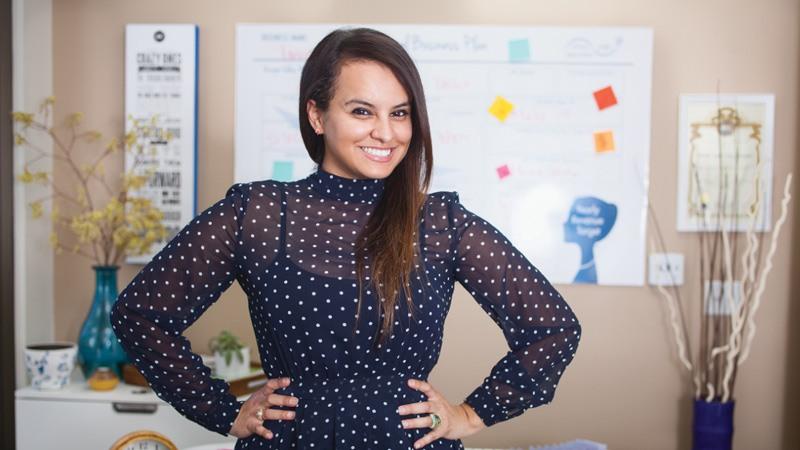
New businesses are essential to creating more jobs. Forty percent of the net new jobs created in the last two decades were due to hiring by new businesses, according to a 2015 report by the Brookings Institute. Small businesses created almost 2 million of the 3 million private-sector jobs generated in 2014.
Support for small businesses is critical to helping them grow. With this in mind, JPMorgan Chase is increasing its program to help small businesses. Called the Small Business Forward program, Chase will more than double its support by committing $75 million to support women-, minority- and veteran-owned small businesses over next three years.
The purpose of Small Business Forward, developed by Chase and launched in 2014, is to support small businesses that have growth potential, offer quality employment and create economic opportunity for vulnerable populations.
One way it supports small firms is by facilitating access to capital. Part of the $75 million committed to Small Business Forward is a $1.9 million grant to the Association for Enterprise Opportunity (AEO). This grant will support the organization’s programs that connect small business owners with alternative funding sources when they are unable to qualify for traditional loans. AEO connects small businesses with Community Development Financial Institutions (CDFIs) when they don’t quality for traditional loans.
Small Business Forward seeds innovative new funds with CDFI partners supporting underrepresented businesses. This builds on Chase’s work to increase capital for minority-owned businesses in New York, Los Angeles, Chicago and Detroit. In March, Chase and VEDC, a Los Angeles-based CDFI, expanded a lending program for African American-owned small businesses in Los Angeles called the National African American Small Business Loan Fund. The Fund also helps minority-owned businesses in Chicago and New York.
Chase first provided the Fund with a $3 million grant in October 2015 and in March contributed an additional $5 million in investment capital. Los Angeles, New York and Chicago are the top cities for African American-owned small businesses.
Chase and the W.K. Kellogg Foundation also launched a new $6.5 lending program in 2015 for Detroit businesses owned by minorities and businesses that primarily hire people of color. Called the Entrepreneurs of Color Fund, it is a CDFI that provides financing to businesses.
In October 2016, the banking giant extended its partnership with the nonprofit lender LiftFund by providing a $4.6 million grant for the new LiftUP Initiative. The program aims to increase economic opportunity for minority- and women-owned businesses in Dallas, Houston, Austin, San Antonio, New Orleans and Atlanta by offering faster and cheaper loans via a Web-based program, which reduces the loan approval time from an average of five weeks to four days.
In 2011, Chase provided $5 million to LiftFund, then called Accion Texas, to increase its lending in Texas and Louisiana. Through the grant, the nonprofit gave over 2,500 loans over a three-year period, which helped create or retain an estimated 5,000 jobs. LiftFund has provided over $200 million in small business loans with a default rate less than 5 percent, and its programs supported the creation of 389 businesses, which in turn created 1,700 jobs. And its portfolio is 75 percent minority-owned businesses.
“Supporting the success of small businesses unable to qualify for traditional capital is not only good for the economic health of the community, but it’s also good business,” Jenn Piepszak, CEO of Business Banking at Chase, said in a statement.“Over the past several years, Chase has referred hundreds of small businesses to our trusted CDFI partners and we’re pleased that many come back to Chase for a small business loan when the time is right.”
The rise in women and minority entrepreneurship
New businesses are increasingly being created by women and minorities, according to the Brookings Institute. From 1997 to 2007, the number of minority-owned small businesses increased by over 25 percent, and the number of women-owned businesses rose by 7 percent. The number of non-minority owned businesses grew by only 6 percent during the same time period, while male-owned businesses dropped by 7 percent.The number of total gross receipts -- defined as sales, receipts, and values of shipments -- from minority-owned firms grew faster than those of non-minority firms. The same is true for the total gross receipts of women-owned businesses versus male-owned businesses.
Accounting for almost 30 percent of all American businesses, women-owned firms had an economic impact of almost $3 trillion -- which either created or maintained 23 million jobs, or 16 percent of all U.S. jobs. However, women business owners face challenges getting fair access to capital. Only 4 percent of the total dollar value of all small business loans goes to women business owners.
The rate of Latino-owned businesses is the fastest growing demographic, but the average sales of Latino-owned businesses were flat from 1997 to 2012, while the sales of non-Latino owned businesses increased 34 percent during the same time period, research by the Stanford Graduate School of Business found. Less than 1 percent of the startups funded by venture capitalists were founded by a Latino.
Image credit: JPMorgan Chase

Gina-Marie is a freelance writer and journalist armed with a degree in journalism, and a passion for social justice, including the environment and sustainability. She writes for various websites, and has made the 75+ Environmentalists to Follow list by Mashable.com.














